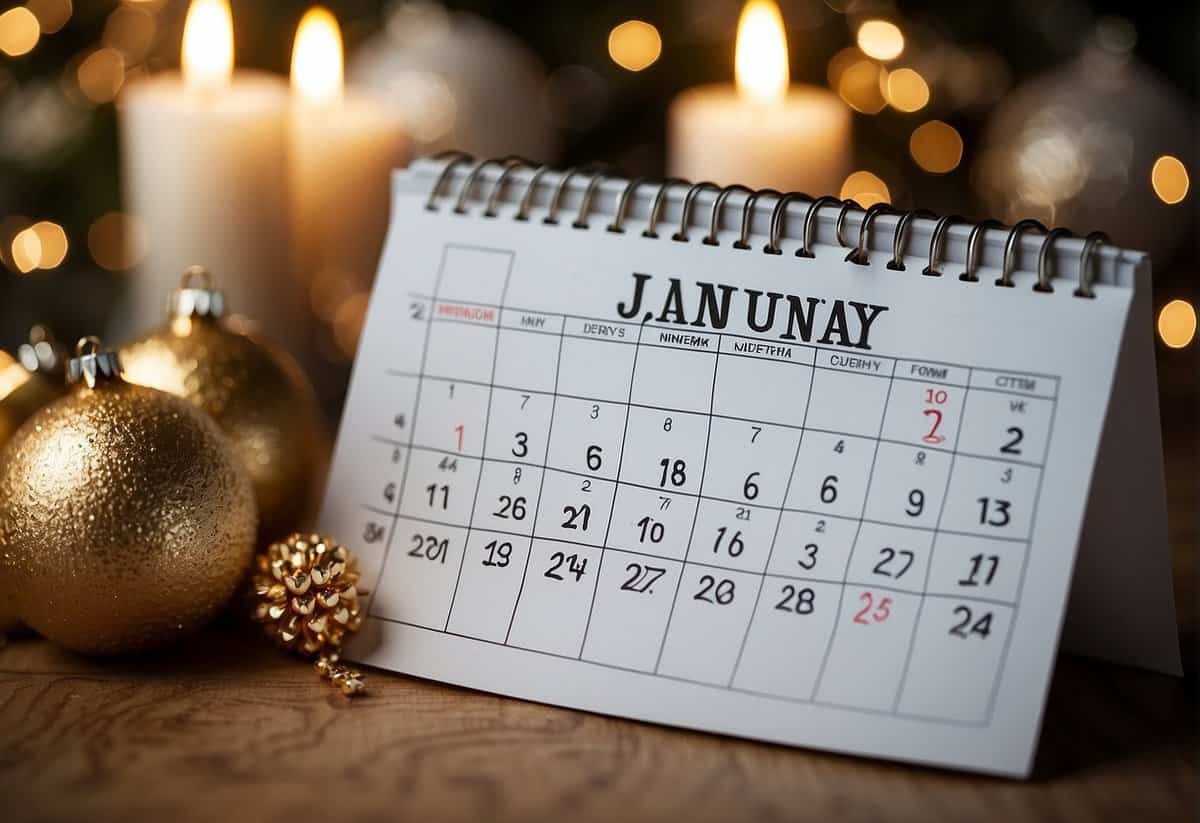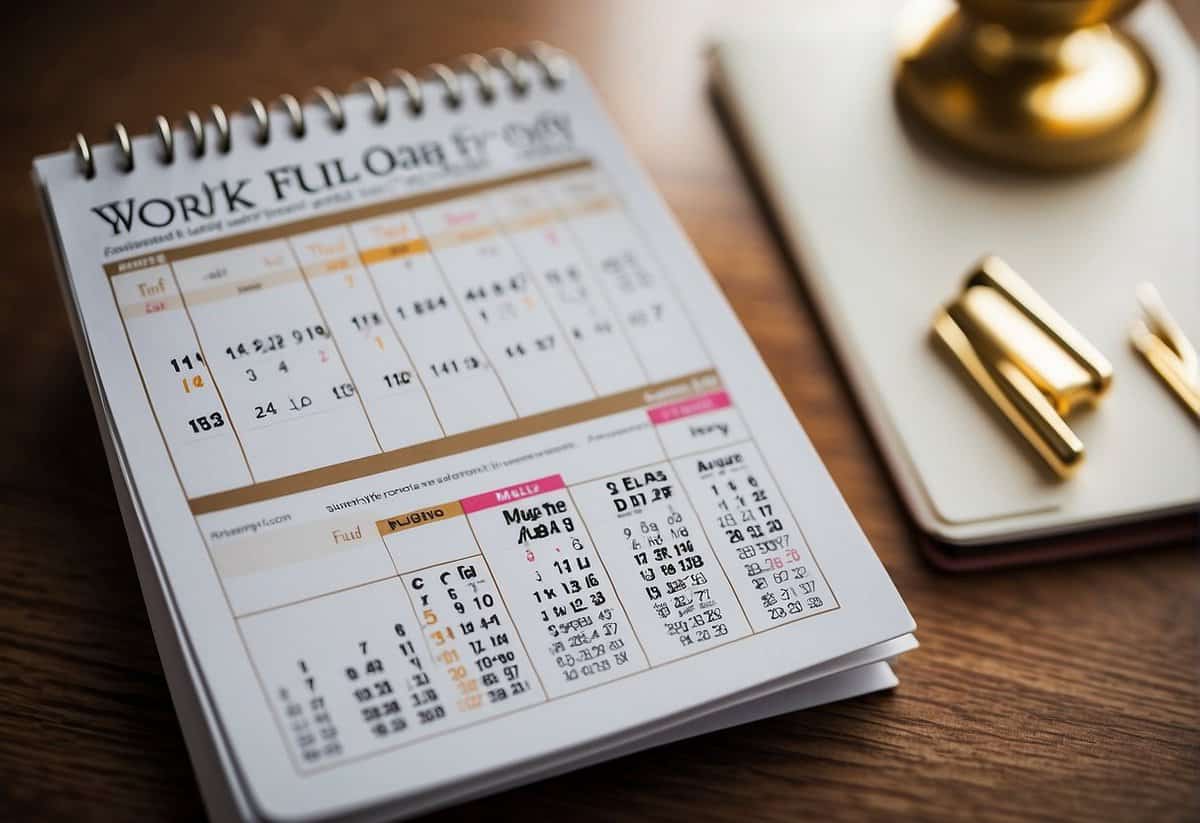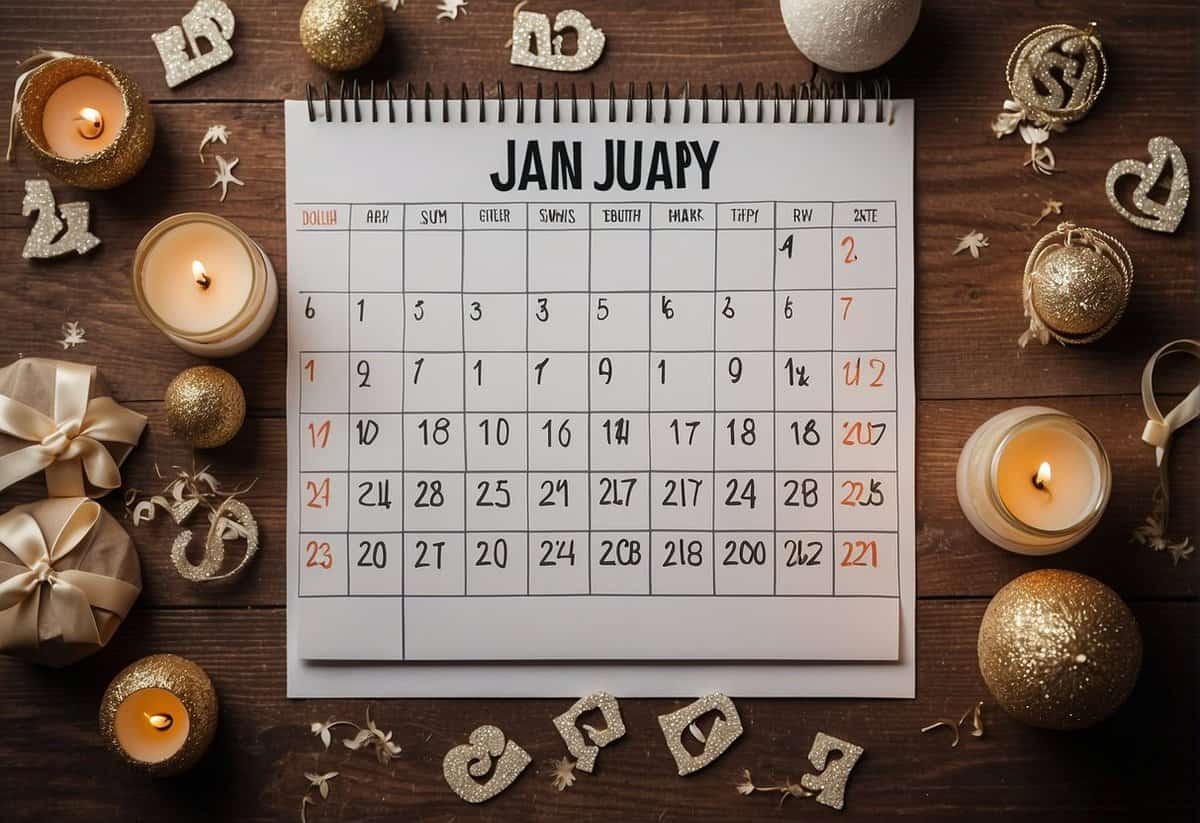What is the Cheapest Month for a Wedding? Uncover Budget-Friendly Options
Choosing the right month for your wedding can significantly affect your budget, with some months offering substantial savings on venue and vendor costs. While the warmer months have historically been favored for nuptials, considering an off-peak time of year could lead to substantial savings. January, for instance, is often cited as one of the most affordable months to get married, falling outside the traditional wedding season when demand for venues and services is lower.

Your wedding day stands as one of the most significant events in your life, so careful planning is essential—not just for a memorable experience, but also for managing expenses. Exploring less popular months for a wedding is a strategic move for your budget and can offer more flexibility with your guest list and venue choices. Additionally, availability of vendors in these times can mean more personalized attention for your special day.
Key Takeaways
- Off-peak wedding months can significantly reduce wedding planning costs.
- Winter months, especially January, offer potential savings and more vendor availability.
- The date you choose impacts your budget and the size of your guest list.
Understanding Wedding Seasons

When planning your wedding, knowing the difference between peak and off-peak wedding months can significantly impact your budget and experience. Factors such as weather and regional climate trends play a crucial role, so let’s break down what you need to consider.
Peak vs. Off-Peak Wedding Months
The peak wedding season generally spans from late spring through early fall. Specifically, September and October are tied as the most popular months to get married due to favorable weather and the beauty of the changing leaves. Conversely, off-peak months, often considered the wedding off-season, typically include the colder months like January and February where there is a notable drop in demand for wedding venues and services.
Summer months like June are also part of the peak season. Couples tend to avoid the low-season because inclement weather makes planning outdoor activities challenging. Opting for an off-season wedding can often lead to lower costs and more availability among vendors.
The Effects of Weather on Wedding Plans
Weather influences not just the date of your wedding, but also your dress code, venue choice, and guest comfort. For instance, marrying in the summer might mean preparing for heat and humidity, requiring a climate-controlled venue. Meanwhile, a winter wedding could necessitate indoor venues to avoid the pitfalls of cold temperatures.
Planning a wedding during a time when weather is more predictable, like during the fall, can alleviate stress and ensure pleasant conditions for outdoor ceremonies. Spring weddings are also beautiful, though you might contend with occasional rain showers.
Regional Considerations for Wedding Timing
Your wedding location can dictate ideal timing. A beach wedding in summer may be too hot in Southern regions, while fall may offer the perfect balance of warmth and breeze. Northern areas might present the quintessential winter wedding complete with snow, but remember,cold temperatures can influence travel and venue selection.
In general, late spring to early summer and early to mid-fall are safe bets for most locations. If you’re considering a destination wedding, be sure to research the specific weather conditions of that region during your desired timeframe. This way, you can capitalize on the beauty of the season while ensuring the comfort of you and your guests.
Budget-Friendly Wedding Planning

Planning your wedding is an exciting time, but it can also be a financial challenge. By understanding how to navigate the costs, particularly by choosing an off-peak wedding date and negotiating with vendors, you can significantly cut down expenses and keep your wedding budget-friendly.
Cost Benefits of Off-Peak Wedding Dates
Selecting an off-peak date for your wedding can lead to substantial cost savings. For example, opting for a January wedding in New England could mean lower prices for venues and services since it’s outside the busy summer and fall seasons.
- Venues: More availability and better rates.
- Catering: Potential for discounted packages.
- Photography and DJ: More willing to negotiate rates during slower months.
Negotiating with Vendors for Better Rates
When you’re setting your wedding budget, remember that prices quoted by vendors aren’t always final. Use your wedding date and venue to leverage better deals.
- Caterer: Offer to adjust menu options for more favorable pricing.
- Photographer: Book early and ask for off-season discounts.
- DJ: Inquire about package deals if you book additional services.
Tip: Always be polite and transparent with your budget when discussing with vendors.
Wedding Expenses to Consider
Your wedding budget must include all key expenses to avoid any surprises. Here’s a breakdown of common wedding costs:
| Expense | Approximate Percentage of Budget |
|---|---|
| Venue | 40-50% |
| Catering & Alcohol | 20-30% |
| Photography & Video | 10-12% |
| Wedding Flowers | 8-10% |
| Attire & Accessories | 5-10% |
| Music & Entertainment | 5-10% |
Investigate all-inclusive wedding packages to potentially reduce costs on items like catering and decor. Remember to factor in the price of wedding invitations and postage, which can also impact your overall budget.
Selecting the Cheapest Months

When planning your wedding, opting for certain months and days can significantly reduce costs. This guide will help you pinpoint those opportune times.
Cheapest Months for Weddings
Winter: Typically, the cheapest months to have your wedding are during the winter season, with January and February leading as cost-effective options. Wedding venues often offer reduced rates during these months because they fall outside of the traditional wedding season. However, be mindful of increased costs around holidays like New Year’s Eve and Valentine’s Day.
Early Spring and Late Fall: Aiming for early spring months like March or late fall months, particularly November, can also yield savings. Yet, remember to avoid dates close to major holidays like Thanksgiving, to keep expenses in check.
Late Spring: While May approaches the peak wedding season, selecting dates early in the month could still offer some savings.
Early Fall: If you’re considering an early fall wedding, September is becoming increasingly popular, which might reflect on prices. Research for affordable options early if this month catches your eye.
Advantages of Weekday Weddings
Cost Reduction: By choosing a weekday for your wedding, you’re likely to find that venues and vendors offer discounts. A helpful guide supports the claim that venturing into a weekday event can reduce the cost significantly.
Availability: Weekdays usually ensure better availability for venues and vendors, allowing you to book your first choice more easily. Avoid Fridays, though, as they can often be as sought after as Saturdays.
Remember, selecting a cheaper month and considering a weekday wedding can greatly decrease your overall expenses and stress, making your special day more enjoyable.
Additional Factors to Consider

When planning for your dream wedding on a budget, it’s essential to think beyond just the month. The choices you make regarding your guests and the specific date can influence the cost significantly.
Guest Considerations and Flexibility
Your guests play a crucial role in the planning process. If you opt for a Saturday wedding, be prepared for a higher demand for venues and services, as it’s the most common day for nuptials. However, if your schedule is flexible, consider a less popular time such as a weekday or a morning event to potentially lower costs. Fall weddings can offer beautiful fall foliage as a backdrop but booking during an off-peak date can mean significant savings, especially if it falls outside of the traditional wedding season.
Date-Specific Details
While determining your wedding date, consider factors like supply and demand. A winter wedding or an event during another off-season period can reduce venue and vendor prices. Furthermore, the time of day affects your wedding cost—opting for a lunchtime event or a shorter cocktail hour can be more cost-effective than a full dinner service. And if you’re eyeing a destination wedding, travel and transportation costs for you and your guests could be lower in the off-season. When it comes to event rentals, consider timing as well; renting outside peak hours can result in better rates. Last but not least, choosing wedding elements that are in season, from food to flowers, can cut down on costs while ensuring everything is fresh and readily available.
Frequently Asked Questions

Planning your wedding around times when expenses are lower can lead to significant savings. Below, your pressing questions about budget-friendly wedding months are answered.
When is the most cost-effective time of year to have a wedding?
The cost of a wedding can be heavily influenced by the time of year. Typically, the off-peak season for weddings is during the winter months, excluding December due to holiday festivities. Opting for a date during this time can be more cost-effective.
Which month typically has the lowest rates for wedding venues?
January and February often have the lowest rates for wedding venues, due to lower demand following the holiday season. Booking during these months can result in more negotiating power and potentially better deals.
During which season do wedding expenses tend to be lower?
Wedding expenses are generally lower during the winter season. This is because vendors and venues may experience less demand and could offer more competitive rates compared to the high-demand spring and summer months.
Is there a particular time of year when weddings are less expensive due to lower demand?
Yes, early in the year, specifically the months of January and February, you’re likely to find that weddings are less expensive due to lower demand. Additionally, November can be a more affordable choice, as it is before the holiday rush.
What are the best months to get married on a budget?
The best months to get married on a budget are often January, February, and November. These months are considered part of the wedding off-season and can result in lower costs for venues and services.
Are there specific months when wedding vendors offer discounts?
Many wedding vendors offer discounts during their slower months, which are generally in the winter, particularly January and February. However, it’s always worthwhile to inquire with vendors for any off-season specials they may have, as deals can vary by region and individual business policies.
